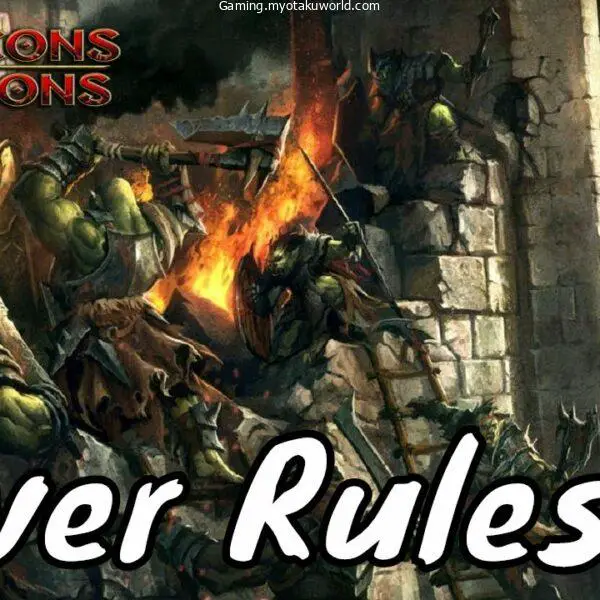The Bloodring Faction has just set you up for disaster. These bastards can do more than what your rogue has said. You have been too slow to see the danger and put the mayor in danger.
The Captain is the only one who can tell the Captain what’s happening. Otherwise, the entire town could be set on fire.
Corellon, you didn’t waste your third-level spell slot. The Captain will give you a piece of copper and sentence the traitors.
The Captain promises that if they find traitors in the town, they will feel the wrath and your party will be rewarded.
You returned calmly knowing that everything would be fine.
Sending
The Player’s Handbook states that sending is a third-level spell. Casting takes 1 action, the range is unlimited, and lasts 1 round.
The components are Verbal (Somatic), Material (A small piece of fine copper wire). This is how the effect looks:
You send a message of no more than twenty-five words to a creature you are familiar with. If it recognizes you as the sender, the creature will hear the message and respond in the same way.
The D&D spell allows creatures with Intelligence scores of at least 1 to comprehend the message.
The message can be sent to any distance, even to other planes, but it is less likely that it will reach its intended target if they are on a different plane.
WHO CAN CAST SENDING IN 5E?
The following classes and subclasses have Sending on their spell list:
The following subclasses get Sending for free:
- Cleric (Peace Domain) (TCoE 33)
A Breakdown of the Spell’s Characteristics
Let’s take a look at the text and find out what this spell means to us. The 3rd level spell Sending will be available to spellcasters at the 5th level.
This level has some of the best spells in the game and the most powerful, fireball. These are the spells that this “Sending”, must compete with.
It is a quick way to send information, even in potentially dangerous situations like being chased or separated from a group. You can send a message of 25 words for the 1 round duration.
The range is the real star of the spell. The campaign will be moving into town-level problems at these levels. Perhaps unlimited range is too much?
As you build relationships with other people, you will get more out of it. It doesn’t matter how far you can reach the receptor, it’s unlimited.
He can also answer instantly. This is a world-changing fact, which we will discuss in more detail later in this article.
These components are verbal which means you must speak an incantation. However, a DM might allow the message to be used as a component.
Somatic means that you cannot cast it to request help or material if you’re not careful. It is interesting to note that the component is identical to the “message cantrip” component. This makes sense. They’re basically the same, but at different scales.
Their school is the other distinction between them. Sending is an evocation spell while a Message is one that can be used to transmute.
It could be that the spell’s creators didn’t know where to place it. However, we trust the Forgotten Realms’ sages and will continue to use them.
The Evocation school spells work by changing the matter, while the Transmutation school spells work with energy flow.
We can see that a Message is an audio message that only the receiver hears. Sending, on the other hand, sends energy to the target’s mind.
These details have little to no mechanical implications, but they can be used to help one flavor his characters.
The Spell’s Effect

This is the most important part. What is the purpose of the spell? A short message is sent to a target you are familiar with.
How familiar are you? It all depends on how the DM interprets it. You could also use this definition from other books. You can find a definition of Clairvoyance spells.
The Scrying spell gives a useful definition for “familiar”. It is “Familiar: you know the target well.” This definition contrasts with “Firsthand” which says that you have met the target.
This means that you can rule that the character must have seen the target and should know its characteristics.
You could, for example, use Sending to send the BBEG to a campaign participant you don’t know. The DM always decides.
The message is an energy-based magick and the receiver hears it in his brain and can respond.
It is important to note that just because the creature recognizes you if you are familiar with it, it doesn’t necessarily mean that it needs to know your name to reply.
Although it is strange that creatures with intelligence of 1 can understand you, the sentence has serious implications. This phrase gives you the opportunity to “Speak with Animals” at a very high price.
Talk to a pet you have while out adventuring, and let him know that your caretaker is a fraud. The dog would understand. Only creatures that have at least 6 intelligence can answer you with anything resembling words.
This spell is especially useful at higher levels when you start to travel interplanetary. It’s amazing that the spell doesn’t restrict you to the plane in which you are traveling.
DMs might find the 5% error a bit funny. You might not hesitate to use a third-level spell slot at higher levels just to make sure the message reaches its target.
Possible “Senders”
This spell can be found in the Bard and Cleric spell lists. Therefore, anyone in that class starting at the 5th level could use it.
This spell is also available to anyone who looks into the spell lists. This spell is available at the 13th level for Eldritch Knights or Arcane Tricksters. It is also available to Divine Soul Sorcerers at the 5th level.
This spell is not only “stealing” from the spell lists but also appears in subclasses such as the Aberrant Mind Sorcerer (from Tasha’s) and the Great Old One Patron For Warlocks (both at the 5th levels.
The Far Scribe Eldritch Incantation from Tasha’s is the best way to obtain this spell. The incantation gives your Pact of the Tome Warlock a phone with a few contacts. This is powerful enough to be a diplomat. We’ll get to this later in the article.
A magic item is another great way to get this spell. The Sending Stones are one of the most simple and effective magic items in the game.
The Uncommon magic item, a pair of stones that you can send from one to another once per day, is the Uncommon.
This is a great item that you can give to (or get from!) an important NPC to keep in contact with. You can take this item as an artificer using the Replicate Magic Items infusion if your DM isn’t willing to give it.
Creative Thinking
Although sending is one of the spells with limited creative potential, it serves a specific purpose: It sends a message.
Although this doesn’t really change based on the class you choose, you can change the flavor of the spell.
An Aberrant mind sorcerer might have his message delivered to him, while an Aberrant Cleric could fall prey to his deity.
A Bard could send his message while singing a lullaby and a Wizard could take from the Pact of the Tome warlock to write his messages on a page of the spellbook.
You should always look for good flavors for your characters. This is what makes them feel alive and available to everyone at the table.
Remember that this spell doesn’t require the recipient to know you. If he does, you can make the message anonymous.
You could make someone’s sanity go a bit lower if he has a voice telling him things. This spell could be combined with other spells to make it even more creepy.
A kenku can make a traumatic sound in someone’s ears, or someone with the actor feat might pass for someone else. This requires DM approval.
WHAT DOES SENDING DO IN 5E?
Sending sends a message of less than 25 words to a creature you know. The creature hears the message in their mind, knows who sent it (if they know you), and can answer right away by speaking out loud. All creatures with 2 or more Intelligence can figure out what the message means, no matter what languages they know or share.
Sending has an unlimited range, but if the message is meant for another plane, there is a 5% chance that it won’t get there.
The biggest disagreement about Sending is how to define the word “familiar.” I’ll do my best to figure out the “rules” of familiarity and give my opinion in the DM tips section, but this one is different for every DM.
WHO CAN I TARGET WITH SENDING 5E?
Sending can be used to target any creature on any plane of existence, but there is a 5% chance that it won’t work if the recipient is on a different plane. A creature with an Intelligence of 1 will also not understand what the message means.
Is sending worth the slot?
Ok, so is this spell good enough? And, more importantly, is it worthwhile? It depends on what kind of campaign you are having.
For example, a combat-focused campaign might benefit more from a fireball (grenade) than a telephone call (Sending), but other types of campaigns like political intrigues could use a method of communication that is almost impossible to track and intercept.
It allows for instantaneous travel, and interplanar options, and can even be used in an airplane.
However, it is important to remember the cost of the spell. You might end up losing a powerful asset because spell slots aren’t free.
Keep in mind that your message should be no more than 25 words. If you don’t know how you can resume the idea, your DM may role-play the NPC to make it appear like they don’t understand what you are trying to communicate.
Is this a powerful spell? This spell could be compared to real-life technology such as Telegram.
How powerful was the possibility to establish a nearly instantaneous communication link between two people?
SENDING 5E DM TIPS
A lot of players have questions about Sending that aren’t answered in the rules of the game or spell. Here’s what I think about these questions:
What does it mean to be “familiar”? For this answer, I look at how the game works, specifically how the spell “Scrying” works. This spell has changes that depend on how well you know the target, which are described as:
Secondhand (have heard of the target) (have heard of the target)
Firsthand (you have met the target) (you have met the target)
Familiar (you know the target well) (you know the target well)
I’m flexible enough to say that “firsthand” also counts as familiar, especially if the target actually remembers the encounter (e.g., not like meeting a celebrity on an elevator who will forget you in two minutes). I let them send to secondhand targets (kings they’ve seen from a distance, people they’ve seen portrayed in art, etc.), but their chances of success vary.
I might need a straight d20 roll of 16 or more (75% chance of success) to reach such a target. Or it might not work at all, either because it doesn’t work or because the target doesn’t feel compelled to talk to someone they think is a stranger. This group has a lot of royals, gods, and other famous people who are “well-known,” but not in a close way.
Why are there messengers if Sending already exists? If the campaign takes place in a big city and there is a lot of magic around, players are likely to ask this question. There are many possible reasons, such as cost, secrecy, lack of trust in the mages who can cast such spells, lack of knowledge about the target, or the target not responding.
Sometimes, the reason Sending doesn’t work is part of the quest hook (for example, they can hear you but can’t answer because they’re gagged).
Isn’t it stupid that no one I know will ever get lost again? Still, people can get lost. Just because you can call someone doesn’t mean they know where you are or how to get to you. This is also not a 100% sure way to find out if someone is dead.
Maybe they aren’t answering for some other reason. My players do use Sending to make sure people are still alive quite often, even though it costs them a 3rd-level spell slot.
Don’t people with a lot of fame just get spam calls from Sending? It’s strange that Sending doesn’t need a willing target. I guess my answer is, “If you spam call someone famous enough to get lots of spam calls, that’s probably a bad enemy to make.”
But yeah, if Dungeons and Dragons were real, the more famous you were and the more spellcasters you met, the more random thoughts would pop into your head.
On top of that, remind players that 5th-level spellcasters are usually rare, so it’s not like everyone always has a limited cell phone.
Sending: (3rd-level evocation, Unlimited, 1 round, V/S/M (a short piece of fine copper wire)) Send a message of <25 words to a creature you are familiar with. The creature hears the message in its mind, recognizes you as the sender if it knows you, and can answer in a like manner immediately. A creature of 2+ Intelligence understands the meaning of your message.
The message has a 5% chance of not arriving if the target is on a different plane of existence.
FAQs
Can you reply, Sending 5e?
Yes. The spell states that the creature who hears the message can respond at that instant. The DM will decide how much “that moment” is. You won’t know if your target is alive or dead, so if you don’t get an answer, it could be that you are trying to speak to a corpse.
Do you need to speak in order to send 5e?
Although the spell doesn’t clearly state it, you can still rule it in one of two ways. Your character must use the verbal part of the spell to make it work.You could either rule that first by doing some chanting and then your thoughts turn into the message that reaches its target. Or you could argue that the message is the material component but that nobody can hear it because magic is muting it or because you just mumble, and that is what becomes the message. There are many choices.
Can you send a message to a god?
The short answer is no. This is due to the fact that spells such as Divination allow you to ask one question and Communion allows you to ask three questions to a god. Both are higher levels than Sending, and both offer the possibility of receiving a cryptic response.Having said that, it is possible, especially for higher-level campaigns to encounter god’s avatars. In that case, this spell would work just like any other creature.
Can a send be intercepted?
There is no rule that can negate the effects of sending or hearing the words of the caster. This is Homebrew territory. It is possible to create a spell or magic object that specifically interferes with Sending. You could also be loose with spells, monstros, or NPC abilities that have some control over their territory like Strahd in Barovia.









